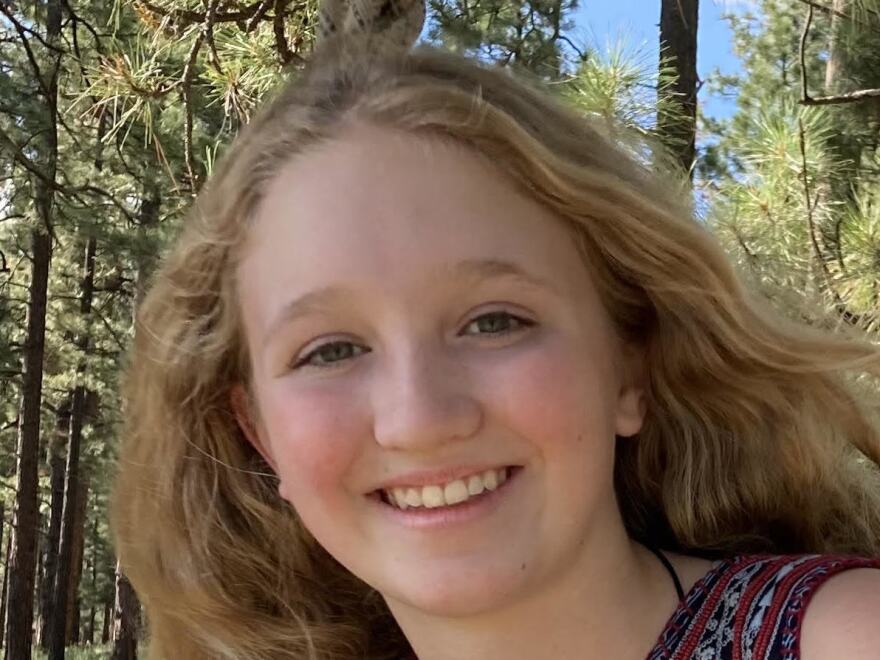
This story is part of the My Unsung Hero series from the Hidden Brain team about people whose kindness left a lasting impression on someone else.
For as long as she can remember, 13-year-old Lila Hoffa has struggled to express herself in writing.
Her handwriting is sometimes messy and disorganized, and she used to have trouble holding a pen. In her first years at school, her teachers didn't notice that anything was wrong. But that changed when she met her third-grade teacher, Valerie Holmgren.
"She realized that there was something more going on than just the typical writing problems," Lila said.
Lila was diagnosed with dysgraphia, a neurological disorder that affects fine motor skills, and impairs your ability to write legibly. So her teachers and her parents held a meeting to figure out what to do next.
"We were all sitting around a long table," Lila recalled. "And Mrs. Holmgren pulled out a computer and opened it to Google Docs, and said that there was this cool thing that she wanted to show me."
Holmgren opened up a speech-to-text program that instantly converts spoken words into typed text. For Lila, a creative student and passionate storyteller, it felt like an epiphany.
"This was just an overwhelming moment for me because I realized all of the stories and the ideas that I had stuck in my head – there was an easy way to get them down onto paper," Lila said. "And I just threw my head back and said, 'I could write a thousand stories.'"
"It was just an amazing moment. And everybody seemed to be thinking like, 'Yes, this is going to work, like we've made a difference.'"
Lila now uses speech-to-text software every day to type up emails, write essays in class, and of course, write stories. The first story she wrote with the program was called "The Girl Would Couldn't Stop Reading — AKA Me!", which was featured on the popular kid's podcast, Story Pirates.
If Holmgren were standing in front of her today, this is what Lila would say:
"Thank you for noticing my potential and noticing that there was so much more to me," she said. "You knew that there was so much inside my head that needed to get out."
My Unsung Hero is also a podcast — new episodes are released every Tuesday and Thursday. To share the story of your unsung hero with the Hidden Brain team, record a voice memo on your phone and send it to myunsunghero@hiddenbrain.org.







